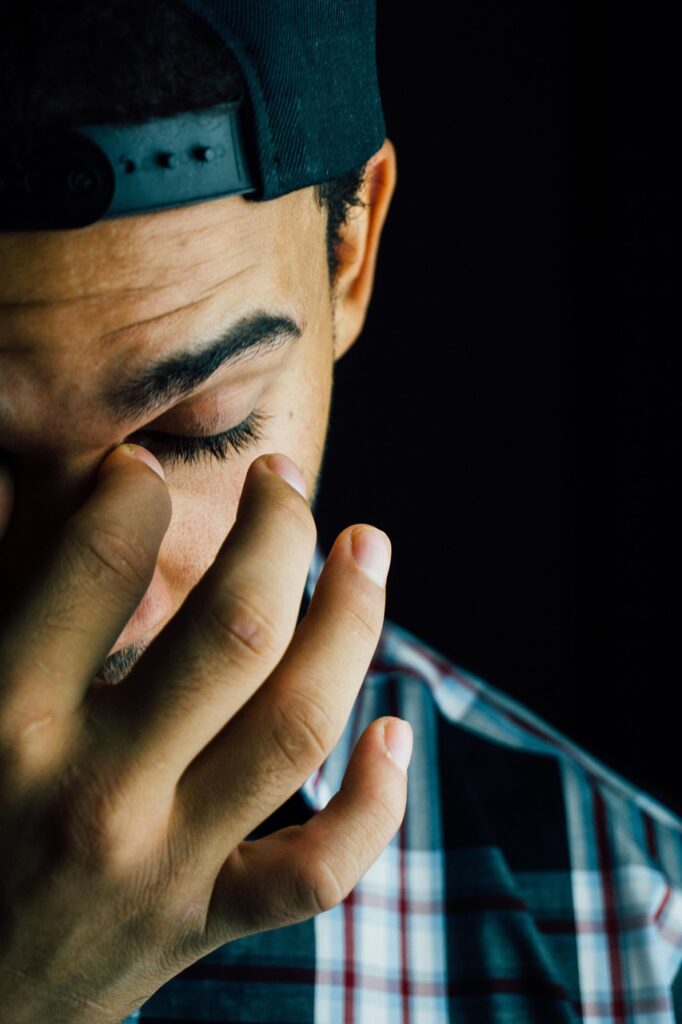Do you or someone you love suffer from cocaine use disorder? Cocaine addiction is common, and can result in serious health complications. Quitting cocaine can save your life. Luckily, you don’t have to do it alone.
Canadian Addiction Treatment Centres (CATC) offers both Inpatient cocaine rehab in Ontario and virtual cocaine addiction treatment tailored to your recovery goals. Our expert team is experienced in helping individuals overcome cocaine use disorder and withdrawal symptoms with a personalized care program and detox, putting you on track for a successful recovery.
Explore Your Options Now
or
 Potential Negative Effects of Cocaine
Potential Negative Effects of Cocaine
Cocaine — also known as C, rock, snow, coke, or blow — is a powerful stimulant that is highly addictive. Its effect on the brain creates a sense of euphoria, but the negative effects on your body can be serious and even fatal. Effects can range from moderate to severe, and vary depending on how the drug is ingested.
It’s important to understand that there is no safe level of use when it comes to cocaine and crack. A person may need cocaine addiction treatment even if they think they can control their use and behaviour.
Short-term Effects of Cocaine Addiction
Cocaine is a fast-acting drug, and you may feel its effects within seconds or minutes of use.
Short-term mental effects of cocaine include:
- Panic
- Anxiety
- Feeling happy and mentally alert
- Increased energy and self-confidence
- Paranoia
Cocaine also causes physical side effects, including dry mouth, dilated pupils, feelings of restlessness and irritability, and a heightened sense of sight, sound, and touch. It is also common to experience quicker startle reflexes, muscle twitches, and a reduced need to eat or sleep.
More severe physical effects of cocaine include:
- Tremors
- Dizziness
- Violent and aggressive behaviour
- Nausea and vomiting
- Rapid breathing or difficulty breathing (if smoked)
Most of these effects wear off after a few hours. Cocaine also poses the risk of overdose, which can be fatal.
Long-term Effects of Cocaine Addiction
With continued use, the effects of cocaine on your mind and body can become more severe and more difficult to reverse.
Cocaine changes your brain chemistry with long-term use, and can impact your cognition and ability to focus. Over time, these effects can get worse and become detrimental to your career, relationships, and life in general.
Common mental effects of long-term cocaine use include:
- Depression
- Problems sleeping
- Extreme mood swings
- Erratic or violent behaviour
- Paranoia, including feelings of distrust, judgment, jealousy or suspicion
- Losing touch with reality (experiencing hallucinations, delusions or psychosis)
Cocaine use can also cause long-term physical effects, including:
- High blood pressure
- Fast or irregular heartbeat
- Increased risk of stroke or heart attack
- Abdominal pain
- Nausea and vomiting
- Changes in appetite
- Bowel perforations and decay
- Low libido
- Impotence in males
- Pregnancy complications including stillbirths and miscarriages
- Brain bleeds, which can be fatal
Smoking crack can have damaging effects on your lungs, resulting in severe chest pain, difficulty breathing, collapsed or inflamed lungs, coughing up blood, and other serious symptoms.
Snorting cocaine can cause nose and sinus problems, including frequent nosebleeds, losing your sense of smell, frequent nose and sinus infections, and developing a hole in the wall between your nostrils.
 When to Seek Help: The Signs of Cocaine Addiction
When to Seek Help: The Signs of Cocaine Addiction
It’s not always easy to recognize cocaine addiction when it’s occurring. It can be helpful to know the common signs and symptoms if you’re unsure whether it’s time for you, or someone you care about, to seek cocaine addiction treatment in Ontario.
The following are common signs of cocaine addiction:
- Using cocaine more or over longer periods than intended
- Craving cocaine
- Experiencing withdrawal symptoms when you stop using cocaine
- Changes in behaviour, such as having a new group of friends or no longer engaging in things you love to do
- Changes in mental health, such as depression or erratic behaviour
- Difficulty maintaining responsibilities at home, work, or school
- Continuing cocaine use despite social or interpersonal problems exacerbated by the drug’s effects
- Isolating yourself from others in favour of using cocaine
- Hiding cocaine use from friends and family
- Using cocaine in situations where it is physically hazardous
- Needing to use more cocaine to get the same high
- Problems focusing and completing tasks
Cocaine addiction can have a broad impact, affecting your mind, body, and social relationships. It poses a high risk of negative long-term consequences on their health, and can sometimes be fatal. That’s why it’s important to seek help as soon as possible.
Finding a cocaine rehab treatment centre can be life-saving. If you are experiencing difficulties, treatment specialists may be able to help you through cocaine detox with a personalized care program and treatment options.
Steps to Starting Treatment
Starting cocaine addiction treatment is a life-saving and transformative experience. Before you begin, it’s necessary to prepare logistically and ensure your emotional readiness through the following steps.
Establish a Strong Support System
You don’t have to go through recovery by yourself. Although your journey will be an individual one, discussing your treatment with your loved ones can help make the process less overwhelming. Our centres offer support groups for both patients and their families.
Educate Yourself on the Treatment Process
Learning about the treatments offered at your chosen rehab centre can be beneficial and empowering. Residential cocaine treatment programs also feature behavioural therapy components, support for co-occurring disorders and wellness activities that support holistic healing.
Take Care of School and Work Obligations
Inpatient care requires several weeks of immersive treatment, away from your daily routine. Be sure to notify your employer or school that you require medical leave so you can focus on healing without the stress of these responsibilities.
Pack the Essentials
Make sure you bring everything you will want to have access to during your inpatient stay, such as clothes, personal hygiene products, comfort items, and personal identification and insurance cards. Be sure to confirm with your admissions team about what you can and can’t bring before arriving.
Trust the Process
Recovery is a long and bumpy road, and it’s important to be patient with yourself and understand that there will be hard days and that healing takes time.
Medical Detox and Withdrawal Management
Drug detox centres in Ontario are recommended for substance use disorders related to cocaine, because it is highly addictive. People experiencing cocaine withdrawal cannot function without it and will experience intense cravings. We provide tailored cocaine detox support at our three home-like centres to set the foundation for a successful recovery.
When you arrive at one of our centres, our treatment specialists conduct an assessment to determine the right care program for you. We carefully manage your withdrawal symptoms with a high degree of personalized care in a safe and structured environment before transitioning you to our cocaine addiction treatment program.
Inpatient Treatment Cocaine Addiction
We operate three best-in-class, CARF-accredited rehab centres for cocaine addiction treatment in Ontario. All of our centres provide detox and inpatient services to support you in achieving the best possible outcome in your addiction recovery.
An Intensive Approach to Cocaine Addiction Recovery
Inpatient addiction treatment (often called residential addiction treatment or rehab) provides a safe and comfortable environment to help people recover from cocaine use disorder.
Our cocaine rehab treatment provides you with the very best care program for your addiction recovery, in a supportive environment that allows you to unplug from the stress of everyday life.
Our Inpatient Addiction Treatment Centres
All of our inpatient addiction treatment centres are accredited with CARF International — the gold standard for excellence in delivering exceptional client care. Our teams are dedicated to meeting and maintaining the highest standard of quality, ensuring every aspect of our service delivery goes above and beyond to support clients’ successful recovery.
Our centres offer the following services:
- Medically-supervised detox
- Individualized treatment plans
- Psychiatric assessment
- Wellness activities
- Support for co-occurring disorders
- Individual therapy
- Group therapy
- Support for family and loved ones
- Aftercare
- Skill-building workshops
1000 Islands Addiction Rehab & Treatment Centre
Located on the shores of the St. Lawrence River, 1000 Islands Addiction Treatment Centre provides everything clients need to recover from cocaine use disorder, including medically-supervised withdrawal management and certified addictions counsellors.
GreeneStone Centre for Recovery
Nestled on the shore of Lake Muskoka, GreeneStone Centre for Recovery offers a wide range of amenities and outdoor activities to support health and wellness, and a quiet, settled atmosphere for introspection and reflection.
Trafalgar Addiction Treatment Centres
Conveniently located just west of Toronto, Trafalgar Addiction Treatment Centre is surrounded by 13 wooded acres of breathtaking nature and provides the highest possible standard of care in a comfortable, home-like setting.
Call Us Now. We're Here to Help
Virtual Outpatient for cocaine Addiction (VIOP)
We understand that not everyone who is experiencing cocaine addiction can or is able to commit to a live-in treatment program. CATC’s Virtual Intensive Outpatient Program (VIOP) is an accessible alternative to inpatient treatment, providing the same quality of care from licensed professionals with the flexibility of living at home and part-time treatment options.
Online cocaine addiction treatment clients attend sessions on a scheduled basis, applying new skills and strategies in real time while staying connected to their support networks and daily responsibilities. VIOP offers a continuum of care and a personalized plan for each individual, creating a more integrated and sustainable recovery.

Virtual Aftercare Support
Completing a cocaine addiction treatment program is an incredible accomplishment, but it’s not the end of the recovery journey. Our treatment programs include Virtual Aftercare Support, with extensions and supplementary services available.
Our weekly Aftercare Group meetings are led by a trained facilitator and provide a safe and non-judgmental environment where our strong Alumni community share their challenges and successes in managing their sobriety.

Client Benefits of Virtual Aftercare Support
- Building and reinforcing recovery skills
- Relapse prevention
- Community and peer support
- Transitional support when returning home
- Help navigating the challenges of early recovery
- Re-establishing a healthy and fulfilling lifestyle

Why CATC is the Right Choice to Help You
At CATC, we understand that our clients are trusting us with their health and with their lives. We honour this by taking a person-centred approach and providing the highest possible standard of care.
Why People Choose Us
Compassionate and Welcoming Team
Our treatment specialists are committed to creating a friendly, judgment-free environment for all while providing the safety and supervision needed on your journey to recovery.
Cozy and Modern Treatment Centres
Our well-appointed facilities offer comfortable, home-like environments surrounded by nature, complete with health and wellness activities and amenities.
Holistic Approach
Our programs take a person-centred approach, providing holistic support that includes your family and loved ones and a specialized treatment plan that is tailored to you.
Virtual Care
Our Virtual Intensive Outpatient Program is a flexible, affordable, and secure treatment option that can be completed on a part-time basis and accessed anywhere, at any time.
Continuity of Care
When you choose CATC, you can expect outstanding support for your long-term recovery. We’re with you every step of the way, and provide Aftercare as part of every treatment program, and welcome you into our alumni community upon graduating.
Evidence-based Treatment
Our treatment specialists are experts in their fields, providing medically-proven therapies and treatments to help you meet your cocaine addiction recovery goals.
Contact CATC to Take the Next Steps Towards Recovery
Do you need help beating cocaine addiction? Our team at Canadian Addiction Recovery Centres provide judgment-free, evidence-based addiction treatment for people struggling with cocaine use disorder, virtually and in person.
We are Canada’s largest national provider of health supports for substance use and addictions. Don’t wait to regain control over your life— get in touch with CATC today to learn more about cocaine detox and treatment options and begin your path to recovery.
We are here for you at CATC. Book a call with our team to schedule a free personalized consultation:
 Potential Negative Effects of Cocaine
Potential Negative Effects of Cocaine When to Seek Help: The Signs of Cocaine Addiction
When to Seek Help: The Signs of Cocaine Addiction